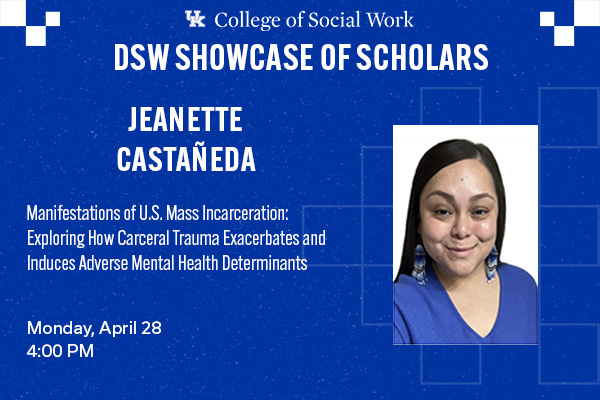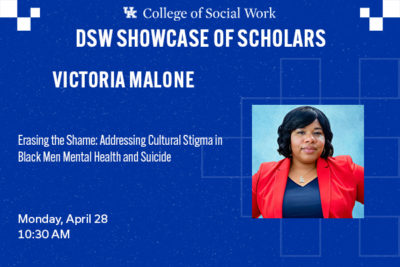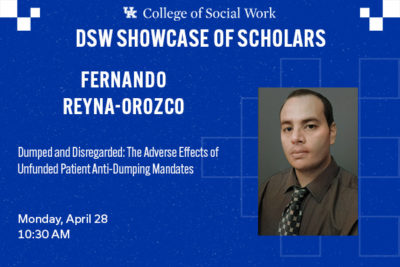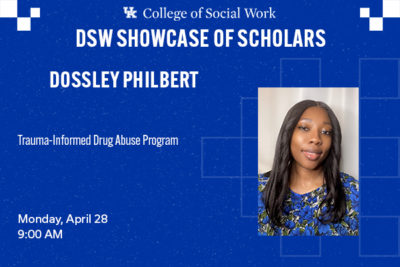DSW Candidate – Jeanette Castañeda, 4:00 PM – 5:15 PM
$0.00
Virtual Showcase of DSW Scholars 2025 Event!
Manifestations of U.S. Mass Incarceration: Exploring How Carceral Trauma Exacerbates and Induces Adverse Mental Health Determinants
DSW Candidate – Jeanette Castañeda, MSW, PPSC-CWAS
Monday, April 28, 2025
4:00 PM- 5:15 PM Eastern Time Zone
Credit Hours: This session is not eligible for CE credit.
Description
Manifestations of U.S. Mass Incarceration: Exploring How Carceral Trauma Exacerbates and Induces Adverse Mental Health Determinants
This presentation explores the psychological consequences of mass incarceration through the lens of carceral trauma and its role in exacerbating and inducing adverse mental health conditions. Rooted in a comprehensive capstone project, this research comprises three scholarly products: a systematic literature review (SLR), a conceptual paper (CP), and an application paper (AP). The SLR synthesizes findings from five peer-reviewed journal articles (2014–2024), highlighting the prevalence and severity of carceral trauma among formerly incarcerated populations in the United States. It examines how incarceration leads to post-incarceration mental health conditions, including anxiety, depression, and Post-Incarceration Syndrome (PICS).
Building on these findings, the CP introduces an innovative theoretical framework that integrates general systems theory and ecological systems theory to conceptualize carceral trauma as both a systemic and individual-level crisis. This framework emphasizes the structural factors that contribute to psychological distress among formerly incarcerated individuals. To bridge the gap between research and practice, the AP presents a digital awareness and psychoeducational toolkit, designed to enhance public and professional understanding of carceral trauma and its mental health implications. This toolkit serves as a resource for clinicians, policymakers, and communities to promote trauma-informed care and policy reform. Together, these scholarly products underscore the urgency for clinical practice reforms, targeted mental health interventions, and legislative policies that address the long-term psychological impact of incarceration, advocating for an equitable and rehabilitative system.
Upon completion of this conference, participants will be able to:
- Critically analyze the gaps in research on carceral trauma and its role in inducing and exacerbating mental health conditions among formerly incarcerated populations.
- Develop an understanding of the psychological and systemic impact of carceral trauma, including its association with Post-Incarceration Syndrome (PICS).
- Apply the innovative conceptual framework to advocate for the clinical recognition of PICS and inform mental health interventions.
Delivery Method: Live Interactive Training via Zoom Video Conferencing
Credit Hours: This session is not eligible for CE credit.
Target Audience: This conference is intended for social workers and students.
Accreditation: University of Kentucky College of Social Work, Provider # 1377, is approved as an ACE provider to offer social work continuing education by the Association of Social Work Boards (ASWB) Approved Continuing Education (ACE) program. Regulatory boards are the final authority on courses accepted for continuing education credit. ACE provider approval period: 9/29/22-9/29/25. Social workers participating in this conference will receive up to 15 general continuing education credits.
Claiming CE Credit: Instructions for claiming CE credit will be disseminated at the beginning of each session.
Questions: If you have any questions regarding CE credit or to report a grievance, please contact Christina Krantz at Christina.Krantz@uky.edu. For technical assistance, please contact lmshelp@uky.edu.
Disclaimer: The views and opinions expressed in these presentations are those of the individual presenters and do not necessarily reflect the official policies or positions of the University of Kentucky or the College of Social Work. The inclusion of any topics, perspectives, or discussions is intended for academic engagement and does not constitute endorsement by the institution.



